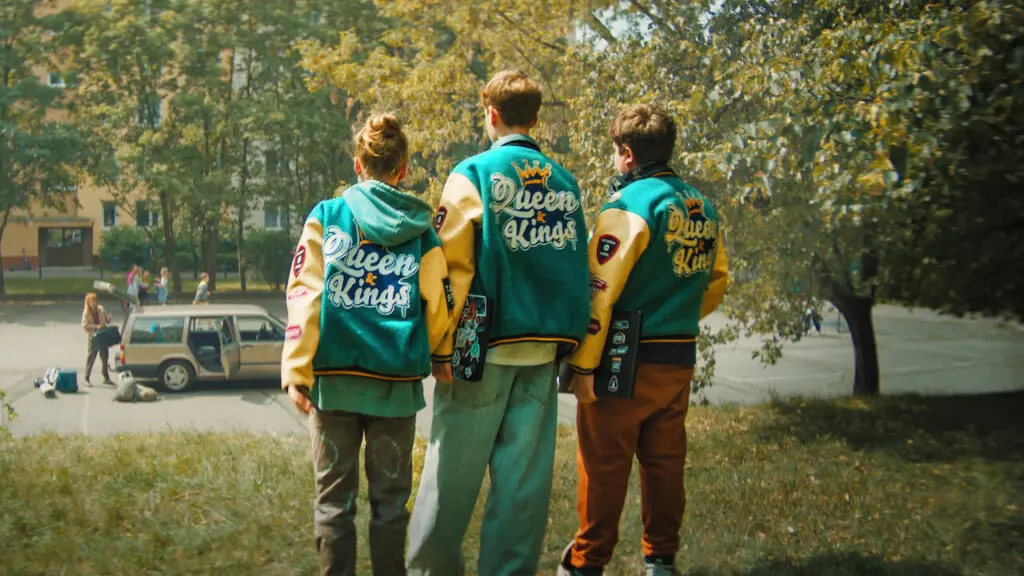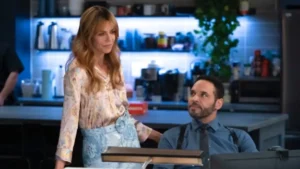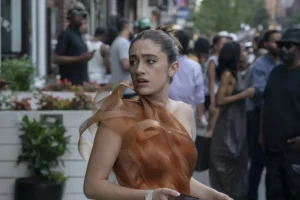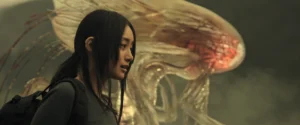Summary
Too Old For Fairy Tales 2 is pleasant enough, but it’s a sequel that struggles to justify its existence through its entire runtime.
It might just be me, but I didn’t think Netflix’s so-so Polish coming-of-age movie Too Old For Fairy Tales really needed a sequel. You can’t come of age again, can you? But if it had to happen, they could have at least used the obvious title of 2 Old For Fairytales. Talk about a missed opportunity.
Alas, here we are, with both a sequel and a worse title, and a film of roughly analogous quality to the first. It’s a bit lighter without the threat of impending death for one of the characters, but it plays with serious elements along the way to its rote, predictable conclusions.
If you need a refresher, allow me: The first movie was about Waldek (Maciej Karas), an avid gamer forced to peep out from behind his laptop to deal with the very real prospect of his mother, Teresa (Karolina Gruszka), passing away.
The second film has a happier setup: Teresa, now completely well, is taking Waldek and his gaming friends Staszek (Patryk Siemek) and Delfina (Amelia Fijalkowska) on a trip to the Tatra Mountains with her boyfriend, Piotr (Pawel Domagala). They’ll be staying with Waldek’s Aunt Mariola (Dorota Kolak), partaking in various comedically rural activities, and falling foul of the local fauna.
See? Happier. But a bit of a pall is cast over proceedings when Waldek and Staszek set out to find Waldi’s biological father, who apparently lives nearby, leaving Delfina behind to run interference. Circumstances conspire to keep the cast in separate pairs (Waldek and Staszek, Delfina and Teresa, Piotr and Mariola) for a good stretch of the movie.
There’s almost nothing interesting happening here. From the premise alone, you can predict exactly where it’s all going, especially once we meet Waldi’s father Krzysztof (Michal Zurawski) and discover he’s a wealthy video game developer who lives alone and in secrecy like a swanky Bond villain.
With such an overly familiar premise, it’s up to the characters to do all the heavy lifting, and if nothing else the least you can say for Too Old For Fairy Tales 2 is that everyone in it is pretty likable. Waldi, Delfina, and Staszek have a good dynamic, Piotr is a kind-hearted dope who tries to relate to the kids by regurgitating Urban Dictionary lingo, often in the wrong context, and there’s a real warmth with Teresa and Mariola.
But it’s a small consolation for such a dry screenplay which flits between arch slapstick nonsense – Waldi and Staszek being chased by a bear, say – and earnest sentiment which doesn’t always feel earned. As likable as the characters are there’s nothing distinct about them, so there’s nothing to latch onto. We can see what’s coming a mile away.
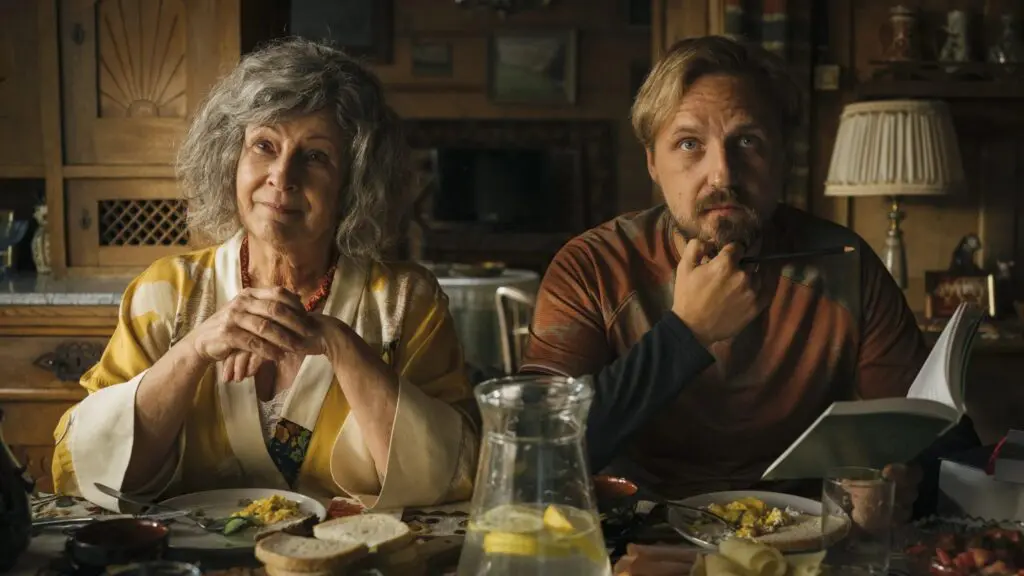
Too Old for Fairy Tales 2 | Image via Netflix
Let’s talk about themes and background stuff instead, not that it’s really any more interesting. The title of this sequel, as with the first movie, is slightly ironic; they’re about a young boy realizing that he isn’t living in a fairy tale and that the idyllic solutions to his problems that he’s searching for aren’t feasible.
Too Old For Fairy Tales 2 commits to this idea a little bit more, since it doesn’t have the get-out-of-jail twist that the first movie had with Teresa’s health woes. Waldi has to learn a little bit more about himself, his friends, and his family in this movie, so that’s nice, if not a valid justification for making this sequel in the first place.
There’s also – again, as with the first movie – a theme of gaming threaded throughout the whole thing, but it’s used more tokenistically this time. In the first movie, Waldi’s obsession with gaming was a metaphor for his refusal to confront reality; the build-up to the climactic tournament at the end of the first film was a moment of catharsis for him and his friends.
In Too Old For Fairy Tales 2, the kids hand their laptops over when they arrive at Mariola’s place and they don’t touch them again. Gaming is instead something Waldi and Krzysztof can bond over, but it’s also Krzysztof’s area of expertise and the main subject of his ruthlessness, giving the art form an oddly negative connotation that feels at odds with how gaming was presented in the first film.
If I’m rambling at this point, forgive me, but I’m trying desperately to find an upside in a pleasant enough but ultimately very trite sequel that clearly didn’t need to be made and can’t justify its existence. But perhaps that sentence is summary enough.
RELATED:

